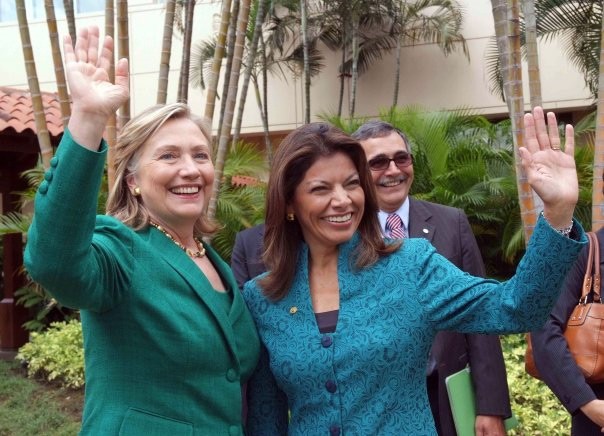
Costa Rica President Chinchilla Signs the Declaration of Internet Freedom
Two years ago, the Costa Rica Constitutional Court declared that access to the Internet is a fundamental right.
And earlier this year, Costa Rica President Laura Chinchilla gave a stirring speech in which she called the Internet "the hope of an integrated world without frontiers, a common world without controlling owners, a world of opportunities and equality."
Costa Rica is once again in the Internet freedom spotlight: President Chinchilla has signed the Declaration of Internet Freedom.
“The Internet has brought a new level of productivity fueled by innovation and creativity. I believe this has been possible due to the open and free nature of the Internet to date,” President Chinchilla told us. “Although digital divides still exist around the world, we must implement policies to close these gaps, which can only happen in an environment of openness and freedom.
“I am, therefore, happy to add my signature to the Declaration of Internet Freedom, and hope the leaders of the world will join us in preserving and nurturing this openness and freedom upon which a bright future can be built.”
In signing the Declaration, President Chinchilla joins more than 2,000 organizations and small businesses from around the world, as well as five members of Congress here in the U.S., in affirming our basic online freedoms. President Chinchilla is joining a global push in support for the Declaration — a push that’s increasing in size and intensity as threats to the open Internet emerge.
In just a few days, the International Telecommunications Union (ITU) will meet in Dubai to discuss new proposals that would threaten the open Internet and make it harder for people in some countries to get online (watch a good explainer video about the agency and the meeting here). Discussion of these proposals, and decisions about whether to adopt them, will be made behind closed doors with barely any input from the public.
In response, hundreds of civil society organizations have banded together to tell the ITU to act transparently — and reject any proposals that hurt the open Internet.
Meanwhile, here in the U.S. Congress is considering legislation that could erode our online privacy; phone and cable companies are asserting a First Amendment right to "edit" the Internet; and attempts to reform archaic copyright laws — from activists across the spectrum — are considered verboten by the establishment.
All of which suggests that the need to protect the Declaration’s five principles — expression, access, openness, innovation and privacy — is more important than ever.
The open Internet has clear benefits for our democracies, our economies and our cultural lives. We hope President Chinchilla's support will help pave the way for even more heads of state to acknowledge that our online freedoms must be respected at all costs.
Original photo of Secretary of State Hillary Clinton and Costa Rica President Laura Chinchilla by the U.S. State Department via Flickr
If you care about preserving the open Internet, please consider a donation to the Free Press Action Fund.